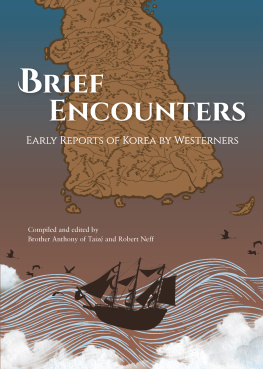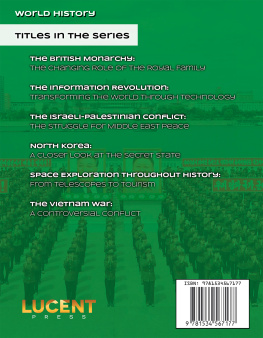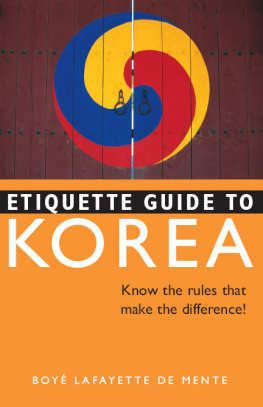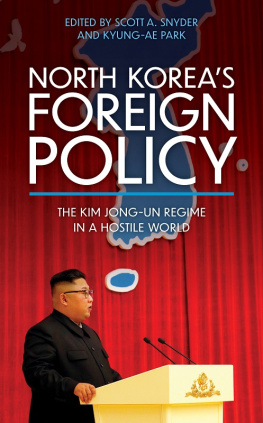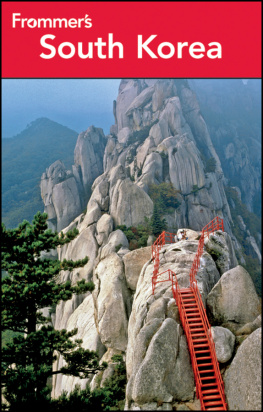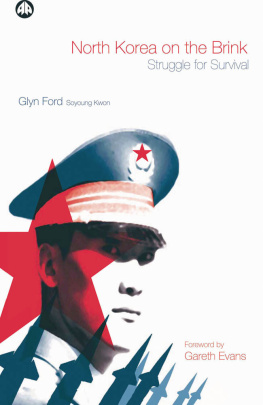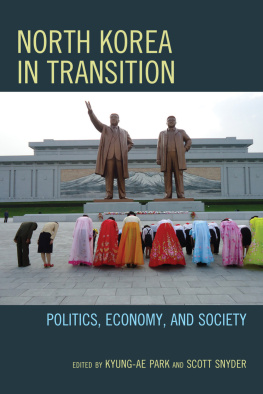The Korea Foundation has provided financial assistance for the undertaking of this publication project.
No part of this book may be reproduced or utilized in any form or by any means without the written permission of the publisher.
Published in 2016 by Seoul Selection U.S.A., Inc. 4199 Campus Drive, Suite 550, Irvine, CA 92612

I t has often been noted that the Travels of Marco Polo (12541324) include a reference to people from a region called Cauly or Kauli, which is the name given to Korea in old Chinese-based accounts. It is often said that this is the first European reference to Korea. This is probably wrong, for other Europeans had reached the regions to the northwest of China before him. One, William of Rubruck (c. 1220c. 1293) was a Franciscan missionary and explorer. His account is one of the masterpieces of medieval geographical literature. William accompanied King Louis IX of France on the Seventh Crusade in 1248. Then, on May 7, 1253, on Louis orders, he set out from Constantinople on a missionary journey that took him to the court of the Great Khan at Karakorum, where he was given an audience on January 4, 1254. On his return, William presented to King Louis IX a very clear and precise report, entitled Itinerarium fratris Willielmi de Rubruquis de ordine fratrum Minorum, Galli, Anno gratia 1253 ad partes Orientales. He lists the names of the peoples he saw at the court, and it is generally thought that those he calls Solanga were from Manchuria or northern Korea and Muc perhaps from southern Korea. However, his mere mention of these uncertain names cannot really be called an account of Korea.
The Portuguese
The first Europeans to sail to India, and then on as far as the countries of Northeast Asia, were the Portuguese. On July 8, 1497, Vasco da Gama set out with a fleet of four ships from Lisbon. The fleet arrived near Calicut, India on May 20, 1498, and then returned home, having established the route. Slowly, amidst terrible violence, Portuguese settlements were founded on the coast of India. The Portuguese State of India was established in 1505. After 1510, the capital of the Portuguese vice-royalty was transferred from Calicut to Goa. In April 1511, the Portuguese reached Malacca in Malaysia, a major trading center, where Malay, Gujarati, Chinese, Japanese, Javanese, Bengali, Persian, and Arabic traders were gathered. The Portuguese conquered the city on August 24, 1511 and massacred the Muslim traders. Malacca became the strategic base for the expansion of Portuguese trade with China, Japan and Southeast Asia. It was later captured by the Dutch in 1641. The Portuguese were the first Europeans to reach China by sea, arriving in Guangzhou (Canton) in 1514. They began trading in Ningbo around 1522, attacking and pillaging multiple Chinese port cities around Ningbo. They also enslaved people. In 1545, the Chinese exterminated almost the entire Portuguese community of Ningbo. Finally, they were granted the use of Macau as a base for trade in 1557. Another Portuguese base was on the island of Shangchuan, where St. Francis Xavier died in 1552.
The first three Europeans known on record to have reached Japan, in the year 1542 according to the Portuguese historian Diogo do Couto (15421616), were the Portuguese traders Antnio da Mota, Antnio Peixoto and Francisco Zeimoto, who arrived on a Chinese ship at the southern island of Tanegashima. If we are to believe his own account, Ferno Mendes Pinto (15091583) was with them. However, his book is not strictly biographical as he also appropriates others stories (see below). Some time before 1540, he claims, during very adventurous journeys, he and two companions boarded a Chinese pirate junk, which was cast by a storm onto the Japanese island of Tanegashima, just south of Kyushu. They gained the favor of a feudal lord, to whom he claims they gave the first European firearm to enter Japan, the Portuguese arquebus (snap matchlock). The weapon, no matter who brought it, was immediately adopted by the Japanese and produced in huge quantities. It was to have a major impact during the Japanese civil wars as well as the ensuing invasion of Joseon, Korea. Known in Japan as the Tanegashima from the place of its introduction, it was later banned as uncivilized, and replaced by the traditional samurai sword.
In 1549, the great Jesuit missionary Saint Francis Xavier reached Japan, with other Jesuits, and Pinto writes that he met him there a few years later, witnessed his debates with Buddhist monks, and helped bring him back to Malacca. Later, after the death of Francis Xavier on a Chinese island, Pinto claims to have brought other Jesuits to Japan and helped them establish their mission there.
The extraordinary story of Pintos adventures was written down by him in about 1569, after his return home to Portugal, but was not published until 1614, thirty years after his death in 1583, with the title Peregrinaam de Fernam Mendez Pinto. A complete French translation was published soon after. The book enjoyed great success in Portugal, and in Spain, where it was translated in an elegant style, very different from the original, which is deliberately simple and artless. Pintos persona is a naive reporter, like Hythloday in Mores Utopia. An English version, very much abbreviated (it has less than 100 chapters, compared to the over 200 chapters of the original) and with no account of the mission of Francis Xavier in Japan, appeared in 1653 during the Commonwealth under Oliver Cromwell as The voyages and adventures of Fernand Mendez Pinto, a Portugal. It was barely noticed.
The adventures related by Pinto are so many, and so hair-raising (thirteen times made captive and seventeen times sold) that he has always been suspected of embroidering reality, but the book is not simply a record of the memories of a man who had been to places that no European had ever seen before and who, by miracles, survived to go back home and write his memoirs. It borrows events from other books and contains, disguised within it, a radical critique and satire of the colonial and missionary enterprise in which Portugal was engaged. Time after time, the narrator (who is a fictional version of Pinto himself) gives examples of generous, kind behavior by non-Christian natives, and of many violent, deceitful acts by the Portuguese. It was only recently, in 1992, that an English translation of the full Portuguese text was published; as a result, Pintos book has never enjoyed the fame it deserves. If it had been properly translated from the start, it might have rivaled Marco Polos tales. It must be said that Pinto does not mention Korea.
In the years that followed the arrival of the Jesuits in Japan, Portugal and Spain competed for the right to preach and trade in the Far East, counting on the Pope to make the final decision. By 1600, Spain had also acquired trading and mission rights in Japan, but the Dutch and English were not far behind. The Portuguese and Spanish viewed them as pirates and heretics and treated the crew of any Dutch ships they captured with great harshness. The Jesuits in Japan sent back reports and letters regularly. These were then published and translated; they contain the first clear references to Korea, especially once the Imjin War began in the early 1590s.

